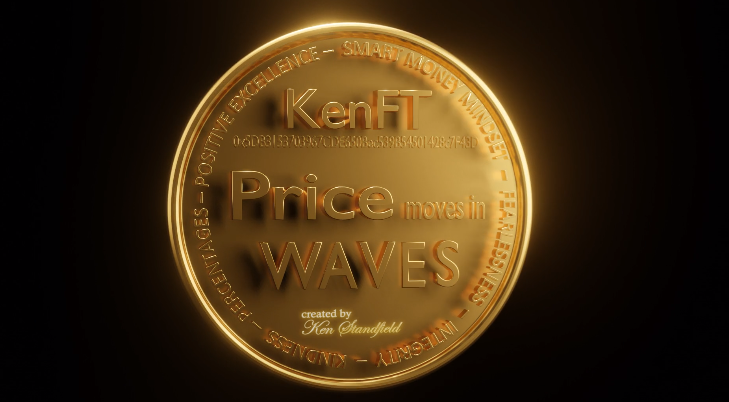-
The monetary entity will be able to finance initiatives via the tokenization of belongings.
-
The president of the CNAD, Juan Carlos Reyes, values the incorporation of the financial institution to the registry.
The National Digital Assets Commission (CNAD) of El Salvador included Banco Atlántida, a monetary entity with greater than $3.6 billion in belongings, in its registry of digital asset service suppliers.
The financial institution obtained authorization to function a platform for exchanging or buying and selling digital belongings or by-product digital belongings. The establishment additionally you may place digital belongings on platforms or digital wallets and promote, construction and handle all forms of funding merchandise in digital belongings, in addition to loans, mutual funds or any type of financing of digital belongings.
As said, after authorization, the financial institution will supply a leasing actual property, the place shoppers will have an alternate to buy their residence counting on tokenization.
He leasing Real property is a contract via which an organization purchases actual property (it will probably be a home, constructing, land, and so on.) on the request of one other firm or particular person, with the dedication that the latter use it by paying a periodic hire.
Through a brand new product, known as Atlántida Living, the financial institution’s shoppers will be able to profit from leasing actual property and thus entry actual property, following a easy course of. Initially, they have to specific curiosity in a property, then The financial institution buys the property and offers prospects an possession token. This token is paid via a hard and fast month-to-month payment. It’s like an revenue. No premiums or writing prices. Each cost will increase the worth of the token.
Once the complete quantity of the house has been paid on the finish of the time period, the token disappears and shoppers obtain the official deeds of the property, registered within the National Registry Center (CNR).
Tokenization sure, cryptocurrencies no
According to the financial institution, they will solely work with real-world belongings. This implies that in monetary operations Cryptocurrencies particularly will not take part and every thing will be primarily based on the tokenization of belongings.
“It is what we believe the country needs to take off in terms of attracting investment. It is not in our plan in the short term to work with cryptocurrencies, it is not the objective of our project in the early stages,” mentioned Carlos Turcios, president of Banco Atlántida El Salvador, in a current interview.
In normal, and as well as to the true property challenge, this new monetary service implies that these in search of to finance a challenge They will be able to achieve this via an issuance of digital belongings or tokenization of belongings.a extra expeditious course of that gives tax advantages by legislation, extra fast liquidity and permits the participation of native and overseas buyers.
Tokenization has a major benefit over different monetary mechanisms, equivalent to securitization, due to its capacity to function with smaller quantities. While securitization usually entails the pooling of enormous quantities of belongings to create marketable securities, which may require appreciable capital and sophisticated buildings, Tokenization permits belongings to be divided into a lot smaller elements or “tokens.”
This implies that even lower-value belongings can be damaged up and bought available on the market, permitting buyers with much less capital to take part in investments that might in any other case be out of attain. So, Tokenization democratizes entry to funding and opens alternatives to a broader viewers.
“When an asset is ‘tokenized’ it is registered in a blockchain that can be checked, validated, and safeguarded. A product is more standardized so that any investor in the world can access it,” says Turcios.
The banking government affirms that the truth that Banco Atlántida has entered the registry “gives a lot of credibility to the ecosystem”, since that is performed on the financial institution’s infrastructure, “with access security controls, information security and compliance.”
“A significant weight”
To delve into the implications of the approval of Banco Atlántida as a digital asset service supplier, CriptoNoticias spoke with Juan Carlos Reyes, the president of the National Commission for Digital Assets (CNAD) of El Salvador.
As Reyes sees it, The financial institution’s authorization “has significant weight for the CNAD.”
“This is because, historically, traditional financial players have demonstrated a certain reluctance to embrace the digital asset industry, exacerbated by global anti-crypto initiatives such as Chokepoint 2.0, which have led to a less than welcoming stance on the part of banks,” he asserted.
He maintains that, along with his determination, The financial institution units a precedent. “And it would not be surprising if other banks follow suit, marking a turning point in the relationship between traditional banking and digital assets.”
Reyes commented that the registration of Banco Atlántida as the primary monetary entity “was not a simple achievement,” contemplating the extra supervision by the Superintendency of the Financial System.
“However, by overcoming these challenges, it has proven to be an actor that significantly enriches the market, bringing its vast experience in the traditional financial field and its established portfolio,” the regulator mentioned. “At CNAD, we hope that this synergy between traditional and digital will drive the healthy growth of the digital asset sector,” he added.
Reyes commented that Banco Atlántida’s determination not to deal with cryptocurrencies within the brief time period and depend on tokenized companies, It is a part of “a widespread misunderstanding about the nature of cryptocurrencies.”
“Most of them are not financial instruments in the traditional sense, but rather vehicles for raising funds for the development of their underlying technology,” he mentioned. “In this context, Banco Atlántida’s decision to focus on tokenized services, instead of cryptocurrencies, demonstrates a strategic vision,” he said.
“They are building a crucial bridge between traditional financial markets and the world of tokenized digital assets, which can offer more stability and opportunities for regulated growth,” he argued.
Kings He didn’t reveal if different Salvadoran banks are additionally on maintain of the authorization of the physique that he presides to launch companies for digital belongings. However, he anticipated that the 12 months 2025 “will mark a significant milestone in the adoption of digital assets by several traditional companies.”
“The recent direction driven in the United States, under the administration of President Trump, has generated a boom that will predictably motivate more traditional companies to adopt this technology seriously, which will eventually lead them to enter the digital asset market” , he completed.












